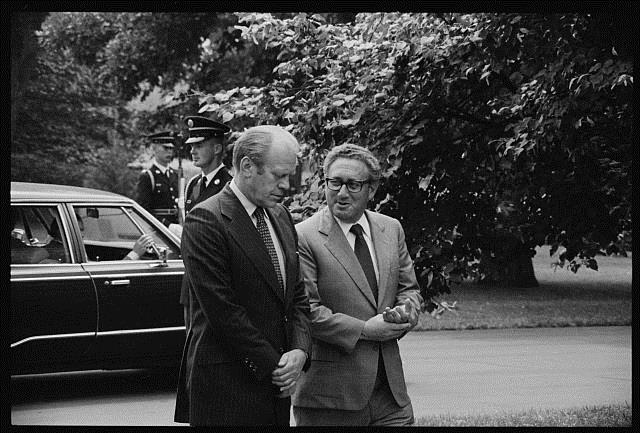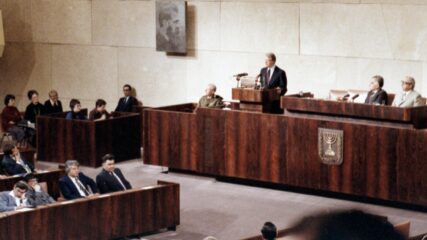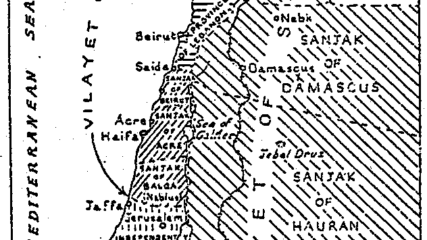September 1, 1975
Ford, Gerald R. Letter to Yitzhak Rabin. 1 Sept. 1975. TS.
From the end of the June 1967 war until President Gerald Ford sent this letter to Israeli Prime Minister Yitzhak Rabin eight years later, the U.S. did not take a formal position on the final status of the Golan Heights, which Israel won in that war. In public, the American view was that this land should be part of an exchange of land for peace in future Israeli-Syrian negotiations. When President Richard Nixon visited Damascus in June 1974, two months before he resigned from office, he told President Hafez Assad that the United States would see to it that the Golan Heights be returned to Syria in final negotiations between the countries. Secretary of State Henry Kissinger, who was at the meeting, disagreed with Nixon, saying that the United States could not guarantee such a promise to Assad. Then Syrian Foreign Minister Abdel Halim Khaddam relayed this story to me when I met him in Damascus in July 1993. Ford committed the U.S. to give “great weight to Israel’s position that any peace agreement with Syria must be predicated on Israel remaining on the Golan Heights.” After the decade of the Syrian civil war petered out with Iranian forces inside Syria, President Trump in March 2019 announced that the United States was recognizing Israeli sovereignty over the Golan Heights. The announcement received minimal response from Arab leaders.
— Ken Stein, August 2020

…In the spirit of the special relationship existing between the United States and Israel and in light of the determination of both sides to avoid a situation in which the U.S. and Israel would pursue divergent courses in peace negotiations, the U.S. will take the position that these are negotiations between the parties. As I indicated to you in our conversation on 12 June 1975, the situation in the aftermath of the Israeli-Egyptian Interim Agreement will be one in which the overall settlement can be pursued in a systematic and deliberate way and does not require the U.S. to put forward an overall proposal of its own in such circumstances. Should the U.S. desire in the future to put forward proposals of its own, it will make every effort to coordinate with Israel its proposals with a view to refraining from putting forth proposals that Israel would consider unsatisfactory.
The U.S. will support the position that an overall settlement with Syria in the framework of a peace agreement must assure Israel’s security from attack from the Golan Heights. The U.S. further supports the position that a just and lasting peace, which remains our objective, must be acceptable to both sides. The U.S. has not developed a final position on the borders. Should it do so, it will give great weight to Israel’s position that any peace agreement with Syria must be predicated on Israel remaining on the Golan Heights. My view in this regard was stated in our conversation of 13 September 1974.
Sincerely,
Gerald R. Ford









